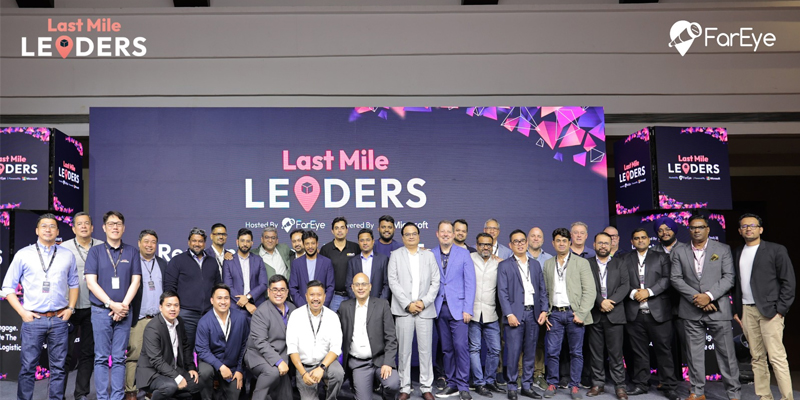[Startup Bharat] How Chennai-based Boonbox is supplying essentials to rural areas during COVID-19 lockdown
Chennai-based last-mile delivery startup Boonbox has repurposed its business model due to the coronavirus, and is now supplying essentials in rural areas.
As Prime Minister Narendra Modi announced the nationwide lockdown to stop the spread of novel coronavirus, the focus has mostly been on one thing – delivering essential supplies to people.
While many startups and businesses in cities have come forward to supply essentials to consumers at their doorstep, the situation has not been the same in smaller towns across India.
But rising to the occasion in these extraordinary times is Chennai-based last-mile delivery startup Boonbox.
The startup was earlier selling consumer durables like smartphones, white goods, and cooking appliances to rural consumers. The seven-year old startup had acquired customers though affiliates across geographies, and had procured products from OEMs and delivered them to customers’ homes in rural areas.
“We also provided customer service to our clients to take care of any post sale and warranty issues. We will now sell essentials to customers through a similar model. The difference is that the transaction size will be smaller, and we will have more frequent transactions with customers, particularly since we are pursuing a subscription model,” says Ramachandran Ramanathan, CEO and Co-founder, Boonbox.
The team will also be the execution partner for institutions, and will provide aid to rural India. Ramachandran adds, “We believe the need of the hour is to rebuild the rural ecosystem, and will focus on livelihood creation in the course of our business. This will involve creating micro entrepreneurs at village level and using SHGs for order generation and fulfillment.”

BoonBox founders
The core business
Today, rural India is spending more time online, thanks to affordable smartphones and cheap data plans.
But on-ground realities and challenges narrate a different story, making it tough for marketplaces and sellers to deliver to and engage with customers in semi-urban and rural India.
This is what led Karthik Natarajan to come up with the idea of Boonbox. Karthik joined hands with Ramachandran Ramanathan (Ram), his former colleague from TVS Group, and Narayanan H to start Boonbox in 2013.
According to the team, in the present situation, the shift has been mainly in the form of a ‘mental pivot’ - firstly to accept the current situation is for real and the company needs to combat it, and to look for opportunities in what seemed like a bleak scenario.
“It helped that we are focussed on rural markets where most of India lives. Hence, the belief that rural will be the focus of relief and rehabilitation efforts, and Boonbox will have a role to play during rehabilitation and after,” says Ramachandran.
Boonbox takes orders from customers through affiliates who have the Boonbox App downloaded on their mobile phones. They then source the products directly from the OEMs through a hub-and-spoke logistics capability, and deliver the products to customers in remote areas.
Now, due to the coronavirus lockdown, instead of OEMs, they are working with local stores, brands, and essentials providers.
Starting from North Karnataka
Boonbox is currently working in North Karnataka, in collaboration with the Deshpande Foundation, to reach out to 2,000 villages in the short term. It is ensuring supply of essentials as well as creating micro entrepreneurs in the process. Boonbox says, it is able to operate with the permission of the district administration.
“Our technology backbone has been curated for the peculiarities of the rural business – our apps are in local language, our last-mile app facilitates route mapping and optimisation in remote areas where genuine addresses do not exist, and our CRM is custom built to cater to our business requirements,” says Ramachandran.
However, he adds, the supply chains are broken, and the availability of products is the key challenge. But they expect that to improve in the coming weeks. Ramachandran adds that the team is trying to overcome that partially through local sourcing.
The market and future
Today, a new breed of ecommerce startups such as ShopX, LaYuva, , , , , , Ezmall Zepo, , and are helping small sellers ride India’s ecommerce wave by providing them with the back-end solutions they need. There also is Delhi-based , which is focussed on last-mile rural connectivity.
Apart from this, there are established startups like Amazon, , , and that have opened their operations to cater to the needs in the rural markets.
“What sets us apart is that our business is fully focussed on rural markets – our target customers live in towns with 30,000 population and below, till the smallest hamlet. We sell consumer durables (smartphones, white goods, and electronic appliances) and other products to these customers at Market Operating Price (the price at which they would be able to buy the products if they travelled to a nearby town). We take orders from customers in 16 states, and have the ability to deliver products in three lakh villages,” says Ramachandran.
The team is also in the process of reaching out to Tamil Nadu and Odisha governments to be their distribution partner in villages. It has already reached out to 80 corporates to collaborate in their CSR efforts and direct them to take up relief efforts in rural areas.
Edited by Megha Reddy






![[Startup Bharat] How Chennai-based Boonbox is supplying essentials to rural areas during COVID-19 lockdown](https://images.yourstory.com/cs/2/a9efa9c02dd911e9adc52d913c55075e/StartupBharat-1587990924649.png?mode=crop&crop=faces&ar=2:1?width=3840&q=75)






